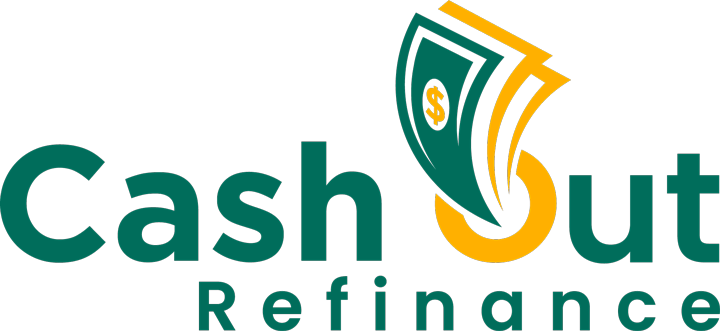For homeowners looking to unlock the equity in their home, an FHA cash-out refinance can be an attractive option. Insured by the Federal Housing Administration (FHA), this type of refinance allows you to replace your current mortgage with a new one, borrowing more than you currently owe, and receiving the difference in cash. This process can be particularly beneficial for homeowners with lower credit scores or less equity who might not qualify for a conventional cash-out refinance.
In this comprehensive guide, we’ll walk you through everything you need to know about the FHA cash-out refinance process, including the key features of this loan, eligibility requirements, and the steps involved in applying. By the end of this post, you’ll have a clear understanding of whether an FHA cash-out refinance is right for you and how to prepare for the application process.

What is an FHA Cash-Out Refinance?
An FHA cash-out refinance is a loan that allows homeowners to refinance their current mortgage while taking out cash based on the equity they’ve built up in their home. Unlike a rate-and-term refinance, which focuses on lowering your interest rate or adjusting the loan term, a cash-out refinance allows you to borrow more than what you owe on your mortgage and receive the difference in cash. This cash can be used for a variety of purposes, such as home improvements, debt consolidation, or major expenses like education or medical bills.
What sets an FHA cash-out refinance apart from a conventional cash-out refinance is that it’s insured by the Federal Housing Administration. This makes it a more accessible option for homeowners with lower credit scores or less equity in their home. In exchange for this added flexibility, FHA loans require mortgage insurance premiums (MIP), both upfront and annually.
Key Features of an FHA Cash-Out Refinance
Before diving into the specifics of how to qualify, let’s take a closer look at some of the key features of an FHA cash-out refinance:
- Loan-to-Value Ratio (LTV): FHA loans allow homeowners to refinance up to 80% of their home’s appraised value. This means you can borrow up to 80% of the value of your home, minus the amount you still owe on your mortgage. The remaining amount can be taken as cash.
- Credit Score Requirements: One of the major benefits of an FHA cash-out refinance is the flexibility in credit score requirements. While most lenders require a minimum credit score of 580, some may have higher requirements depending on the loan terms and individual circumstances.
- Mortgage Insurance Premium (MIP): Unlike conventional loans, FHA loans require both an upfront and an annual mortgage insurance premium (MIP). The upfront MIP is typically 1.75% of the loan amount, while the annual MIP ranges from 0.45% to 1.05%, depending on the loan’s loan-to-value ratio and the term of the loan. These insurance premiums are designed to protect lenders in case the borrower defaults.
- Eligibility for Homeowners with Less Equity: While conventional cash-out refinances often require more equity in the home, the FHA cash-out refinance is more lenient. Homeowners can refinance with as little as 20% equity, making this option more accessible for those who have built up less equity over time.
These features make an FHA cash-out refinance particularly appealing to homeowners who might not meet the strict requirements of conventional loans, but still want to take advantage of the equity in their home.
Eligibility Requirements for an FHA Cash-Out Refinance
Not every homeowner will qualify for an FHA cash-out refinance, and there are specific eligibility criteria that you must meet before being approved. Understanding these requirements will help you determine whether this loan is the right option for your financial situation.
1. Credit Score Requirements
One of the key factors lenders look at when approving a loan is your credit score. For an FHA cash-out refinance, the minimum credit score required is generally 580. However, some lenders may set higher thresholds based on the amount of cash you’re requesting and your overall financial profile. If your credit score falls below 580, it may still be possible to qualify, but you’ll likely face stricter terms and higher interest rates.
Tips for Meeting Credit Score Requirements:
- Check Your Credit Report: Before applying for a cash-out refinance, obtain a copy of your credit report from all three major credit bureaus (Equifax, TransUnion, and Experian). Review your report for any errors or discrepancies that could be lowering your score unfairly.
- Pay Down Debt: Reducing your outstanding debt, especially high-interest credit card balances, can have a significant positive impact on your credit score. Aim to lower your credit utilization ratio (the amount of credit you’re using compared to your total available credit) to improve your chances of qualifying.
- Avoid New Credit Inquiries: Applying for new lines of credit or loans in the months leading up to your refinance can lower your credit score, as each new inquiry results in a temporary drop in your score.
2. Loan-to-Value (LTV) Ratio
The loan-to-value ratio (LTV) is another critical factor in determining your eligibility for an FHA cash-out refinance. The LTV ratio is calculated by dividing the amount of your new loan by the appraised value of your home. With an FHA cash-out refinance, you can borrow up to 80% of your home’s appraised value.
For example, if your home is worth $300,000, you can refinance up to $240,000 (80% of $300,000). If you owe $150,000 on your current mortgage, that would leave you with $90,000 in cash, minus closing costs and mortgage insurance premiums.
3. Homeowner Occupancy
One of the unique requirements for an FHA cash-out refinance is that the home being refinanced must be your primary residence. This means that investment properties or second homes are not eligible for FHA cash-out refinancing. Additionally, you must have lived in the home for at least 12 months before applying for a cash-out refinance.
4. Payment History
Lenders will review your mortgage payment history to determine whether you’ve been making timely payments on your existing loan. To qualify for an FHA cash-out refinance, you must have no missed mortgage payments within the last 12 months. A consistent payment history shows lenders that you’re a responsible borrower who is less likely to default on the new loan.
Steps Involved in the FHA Cash-Out Refinance Process
Once you’ve determined that you meet the eligibility requirements, the next step is to start the FHA cash-out refinance process. Here’s a step-by-step guide on what to expect:
1. Review Your Financial Situation
Before applying for a cash-out refinance, take time to evaluate your overall financial health. Calculate your current loan-to-value ratio, review your credit score, and assess your debt-to-income ratio (DTI). Understanding where you stand financially will help you set realistic expectations for your refinance.
2. Shop Around for Lenders
Not all lenders offer the same terms for an FHA cash-out refinance, so it’s essential to shop around and compare offers from multiple lenders. Look for lenders who offer competitive interest rates, reasonable closing costs, and flexible terms. Since FHA loans are insured by the government, most lenders will follow similar guidelines, but some may have stricter requirements or offer better incentives.
3. Get a Home Appraisal
To determine your home’s current market value, your lender will order a professional home appraisal. The appraiser will assess your home’s condition, size, location, and comparable sales in your area to determine its value. This appraisal is critical in calculating your loan-to-value ratio and determining how much cash you can take out.
4. Submit Your Application
Once you’ve chosen a lender and gathered all the necessary documentation, you’ll need to submit a formal application for your FHA cash-out refinance. Be prepared to provide:
- Recent pay stubs and W-2s to verify your income.
- Tax returns if you’re self-employed or have additional income sources.
- Bank statements to verify your assets.
- A copy of your current mortgage statement to show your outstanding balance.
5. Underwriting and Approval
After submitting your application, the lender’s underwriter will review your financial information, credit history, and the home appraisal to ensure you meet all the requirements. The underwriting process typically takes a few weeks, during which time the lender may ask for additional documentation or clarification on specific items.
6. Closing the Loan
Once your loan is approved, you’ll move to the closing phase of the refinance process. During closing, you’ll sign all the necessary documents, pay any closing costs (which can often be rolled into the loan), and receive your cash-out funds. Keep in mind that FHA loans require upfront mortgage insurance premiums (MIP), which are due at closing.
7. Post-Closing Responsibilities
After closing, you’ll begin making payments on your new mortgage. Be sure to stay on top of your payments and manage your new loan responsibly. If you took out a significant amount of cash, use the funds wisely, whether it’s for home improvements, debt consolidation, or other financial goals.
How FHA Cash-Out Refinances Differ from Conventional Cash-Out Refinances
While both FHA and conventional cash-out refinances allow you to tap into your home’s equity, there are some key differences between the two:
- Credit Score Requirements: FHA loans typically have lower credit score requirements than conventional loans. While FHA loans often require a minimum score of 580, conventional loans usually require a credit score of at least 620.
- Loan-to-Value Ratio: FHA loans allow you to borrow up to 80% of your home’s value, while conventional loans may offer more flexibility with loan-to-value ratios depending on your credit score and financial situation.
- Mortgage Insurance: FHA loans require both upfront and annual mortgage insurance premiums (MIP), regardless of how much equity you have in your home. With conventional loans, private mortgage insurance (PMI) is only required if your LTV exceeds 80%, and it can be canceled once you reach 20% equity.
Final Thoughts
An FHA cash-out refinance can be a powerful financial tool for homeowners who want to access their home’s equity while benefiting from flexible credit requirements and lower down payment thresholds. By understanding the eligibility criteria, reviewing your financial situation, and following the necessary steps, you can successfully navigate the FHA cash-out refinance process and use your home’s equity to meet your financial goals.
Whether you’re looking to make home improvements, consolidate high-interest debt, or fund a major expense, an FHA cash-out refinance offers a range of benefits for homeowners, particularly those with lower credit scores or less equity. By preparing in advance and shopping around for the best lender, you can secure favorable terms and make the most of your refinance.

